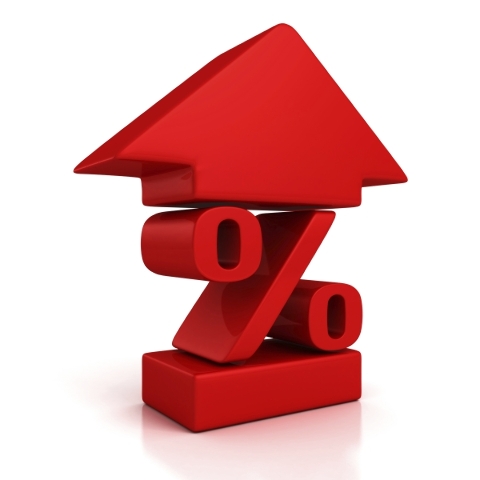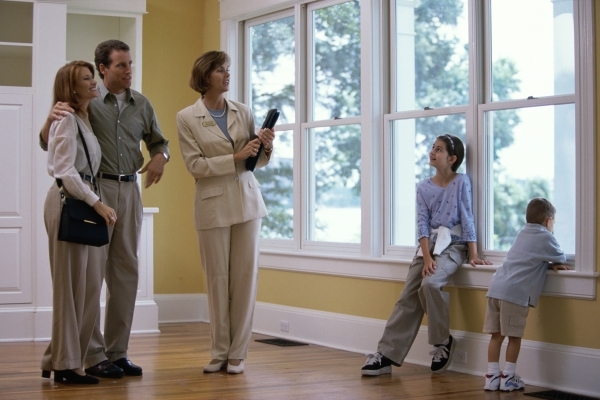How would a rate hike affect the Las Vegas housing market?
Interest rates may be near historic lows, but most financial advisers agree they can't stay low forever. As the Federal Reserve weighs the timing of an increase in interest rates, smart consumers can get their financial house in order before those low rates are history.
"The general consensus is that rates will rise. Nobody expects it to be a dramatic shift, but the clock is ticking on today's low rates," said Craig Martin, director in the mortgage practice for J.D. Power and Associates, based in Westlake Village, Ca.
What the Fed actually controls
The Federal Reserve can't actually "set" interest rates for financial products. "It is more complex than it appears from the outside," Martin said.
When the Fed "raises interest rates," what it is actually doing is raising the target of one specific rate — the federal funds rate. This is the rate that banks charge one another for overnight loans.
Because the federal funds rate is basically the "cost" of money for banks, as the federal funds rate increases, so does the "price" of all bank loan products.
For example, the prime rate tends to be set at 3 percentage points above the federal funds rate. The prime rate is then used as a benchmark for many short-term financial products, including credit cards and home equity lines of credit.
It's time to check out mortgages
Financial advisers agree that if you are on the fence about buying or refinancing, now is the time to act.
"If somebody had a mortgage, that would be one of the first things I'd talk about," says Tony D'Amico, CEO of financial advisory firm The Fidato Group.
However, Martin warns that just because rates are low doesn't mean you should jump into a mortgage without thinking everything through. He says the loan product that makes the most sense depends largely on the situation of the borrower.
"If you are in your mid-20s and you think you will be stable for around five years, you might look at an adjustable-rate product that will lock in for a short time period," Martin said.
But if you plan to be somewhere for the rest of your life, a fixed-rate mortgage makes more sense.
Experts recommend: If you are in the market to buy a house or to refinance your mortgage, act sooner rather than later.
Las Vegas housing market
Las Vegas-based Premier Mortgage Lending's Rick Piette has been making home loans in Las Vegas for more than 30 years. He said it's not a given that if the Fed raises interest rates that it will affect home loans because those rates are tied to short-term borrowing and not long-term loans such as mortgages.
"If the Feds raise rates, it won't necessarily affect mortgages," he said. "They may follow. We think they will follow, but there have certainly been times when they have been contrary to each other.
In addition, he said a few small increases would show the economy is improving and may spark a spike in local housing sales from people who have been "sitting on the fence" and finally decide they should buy before rates start increasing too much.
"Do you want a 3 percent interest rate with a lousy economy or a 6 percent interest rate with a booming economy? Rates are going up for a reason, because the economy is improving," Piette said.
"We have enjoyed these incredible, historically low-interest rates from when the economy was so bad, not only locally but nationally and internationally."
He said he doesn't think rates will rise before the end of the year, but expects slight increases in 2016.
It may be true that the Fed doesn't set the rates for home mortgages, still it's what the housing industry and consumers have become fixated on.
Dennis Smith, owner of Home Builders Research Inc. of Las Vegas, has been studying the local new home market for more than two decades. He said higher interest rates may cause a bump in housing sales for a few months from people who have been lagging in their decision-making, but it won't be good for the market overall.
"I don't understand how higher interest rates helps housing sales," he said.
He believes the economy still has a way to go before it is strong again. And, although job growth is up and unemployment is down, he points to a stalled household income that may be the most defining factor in local home sales.
"For sustained growth in the Las Vegas housing market, we need an increase in household income."
As far as when and how high-interest rates will go up, he said, "They will have to go up eventually. But they can't raise them if the economy can't sustain them. We will see. We won't know until they do it."
Watch for rising HELOC rates
Home equity lines of credit have variable rates that are linked to the prime rate. That means HELOC rates rise when the Fed hikes the federal funds rate.
In contrast, rates on fixed-rate home equity loans don't respond directly to the Fed. They are set by the market forces of supply and demand.
Fewer lenders offer home equity loans compared with a few years ago. Instead, banks have been pushing hybrid HELOC products that let borrowers set aside a portion of the credit line for a fixed term and lock a fixed rate on it.
Refinance credit cards before rate hike
Credit cards are another instrument tightly tied to the federal funds rate. So, if you are carrying a balance on a card, it might make sense to roll that balance into a low-interest card or home equity loan.
Experts recommend: Take advantage of historically low-interest rates to refinance high-interest cards but do this only after you fix your budget overruns.
There will be a gradual rise in deposit-account earnings
Savings accounts, certificates of deposit and money market accounts move nearly in lock step with the federal funds rate. As the Fed pushed down rates, your savings account was one of the first places you felt that dip; vice versa when rates rise. Since the Fed is likely to raise rates gradually, the increases in deposit account rates likely will be gradual also.
D'Amico says he still strongly suggests you keep six months' worth of expenses stashed away in an emergency fund. Experts recommend: Keep your emergency fund in an FDIC-insured account but don't expect it to earn much interest, even if the Fed raises rates.
Consider a car loan before rates jump
Although it isn't a direct relationship, a low federal funds rate does help keep interest low for auto loans.
"Auto finance rates are influenced by the federal funds rate but do not necessarily match it," said Susan Fitzpatrick, a spokeswoman for lender Ally Financial.
Fitzpatrick says the interest rates for auto loans also depend on factors such as your credit score, the price of the car and the overall terms of the auto sale.
Rather than shopping for cars based on interest rates, Fitzpatrick recommends you take into account an accurate picture of what you can pay each month.
Experts recommend: Finance that auto purchase now, before rates go up, but only if buying a vehicle fits into your larger financial picture. Also weigh factors such as down payment and maintaining a good credit score to keep your loan amount lower.
Stock and bond markets could take a hit
With interest rates near 0, you may feel the temptation to borrow money to play the stock market. Don't, says Ken Weber, president of Weber Asset Management in Lake Success, N.Y. The stock market had gone up for about six years. With its recent gyrations, the market is hard to predict. Even with historically low-interest rates, it is too risky to borrow and invest with that money, Weber says. Once rates do begin to rise, it is difficult to say what will happen to markets.
"The conventional wisdom is that both stock and bond markets will take a hit, but it is also true that stocks can climb the wall of worry, so any hit may be short-lived," Weber said.
Experts recommend: Invest cautiously in the stock market, but don't borrow money to invest.
Real estate editor Lyn Collier contributed to this report. To contact her, call 702-383-0299 or email at lcollier@reviewjournal.com.























